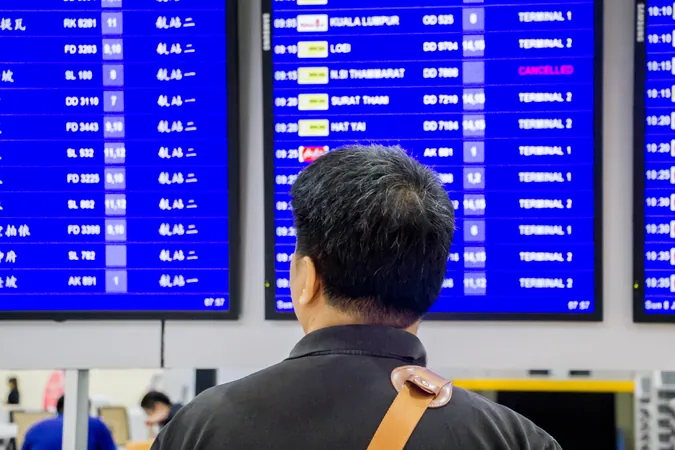
A Shocking 33% of Singaporean Workers Eye Overseas Careers—What’s Driving This Trend?
2024-10-04
Author: Arjun
SINGAPORE: In a striking revelation, a recent survey conducted by Globalization Partners underscores a growing ambition among Singaporean professionals eager to explore international career avenues.
The study, which engaged 2,000 executives and 4,000 professionals across six different markets, found that a staggering 33% of Singaporean workers are contemplating relocating abroad to enhance their careers. This figure considerably surpasses the global average of just 19%.
The survey highlights a strong desire among Singaporeans for roles within global companies, with an impressive 90% of respondents expressing interest in such employment opportunities, significantly outpacing the global average of 80%.
The allure of overseas positions appears to be driven primarily by the prospect of better financial rewards and benefits, with 75% of participants identifying these as the primary motivator—up from 62% just a year ago.
Many Singaporean employees are increasingly viewing international experience as a prerequisite for career growth.
However, the survey does not shy away from addressing the challenges associated with this ambition. Respondents cited persistent hurdles, including language barriers, cultural differences, time zone variations, and limited visibility with management as significant obstacles to pursuing roles on the global stage.
In a notable shift, perceptions of global firms' ability to manage economic uncertainties have evolved. While fewer employees now believe these companies are better equipped to handle such challenges, 40% of respondents feel that global firms are increasingly adept at navigating geopolitical tensions, rising from 34% in the previous year.
Moreover, the survey unveiled a strong interest among Singaporean workers in the potential of artificial intelligence (AI) in the workplace. A remarkable 97% of participants expressed enthusiasm for AI's capacity to automate tasks and improve analytical functions.
However, a significant cautionary note emerged as 36% of employees voiced concerns regarding AI's implications for job security, fearing that their roles might be undervalued in the wake of rapid technological advancement.
As Singaporean professionals weigh their options, this data paints a compelling picture of an ambitious workforce ready to take on global challenges, yet simultaneously grappling with the implications of a rapidly changing job landscape.
The desire to thrive in the international arena is evident, but the journey is not without its complexities. Are Singaporean workers about to embark on a bold new chapter in their professional lives? Only time will tell!


 Brasil (PT)
Brasil (PT)
 Canada (EN)
Canada (EN)
 Chile (ES)
Chile (ES)
 España (ES)
España (ES)
 France (FR)
France (FR)
 Hong Kong (EN)
Hong Kong (EN)
 Italia (IT)
Italia (IT)
 日本 (JA)
日本 (JA)
 Magyarország (HU)
Magyarország (HU)
 Norge (NO)
Norge (NO)
 Polska (PL)
Polska (PL)
 Schweiz (DE)
Schweiz (DE)
 Singapore (EN)
Singapore (EN)
 Sverige (SV)
Sverige (SV)
 Suomi (FI)
Suomi (FI)
 Türkiye (TR)
Türkiye (TR)